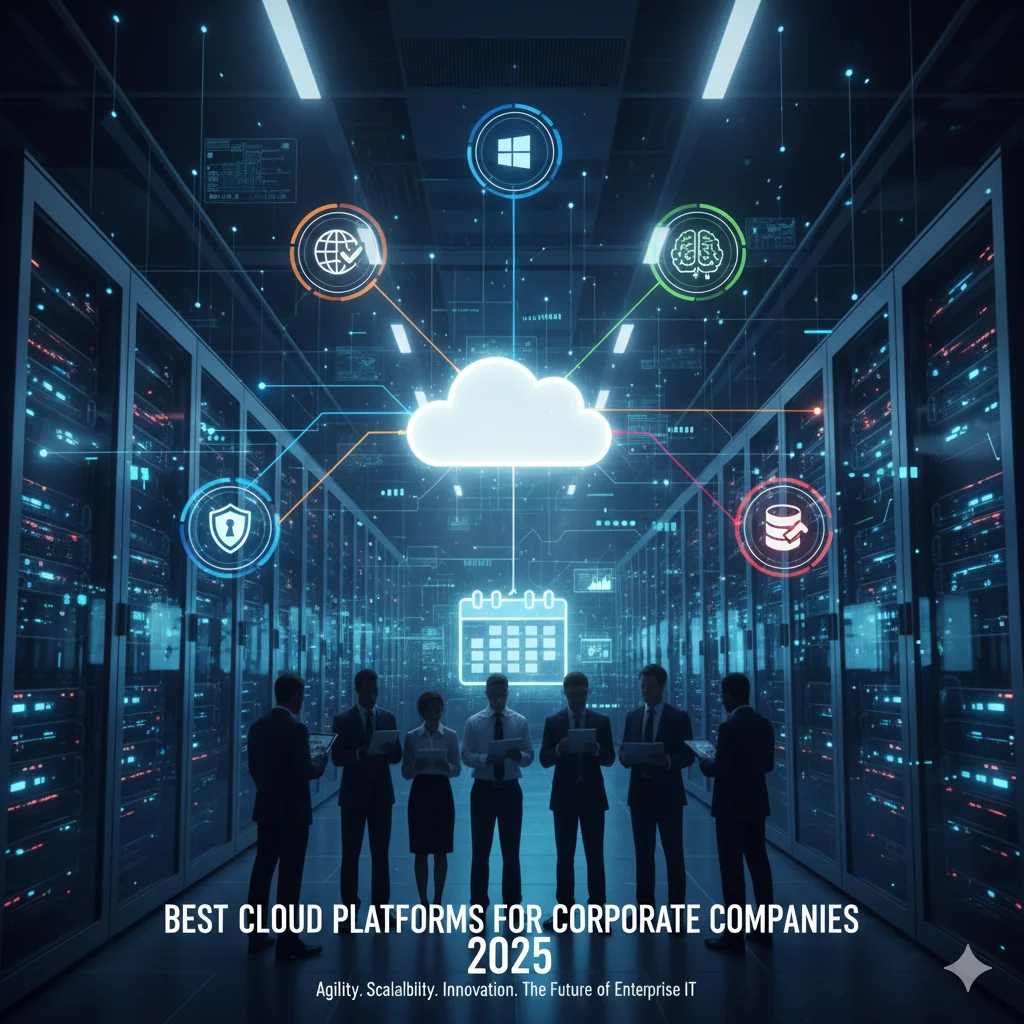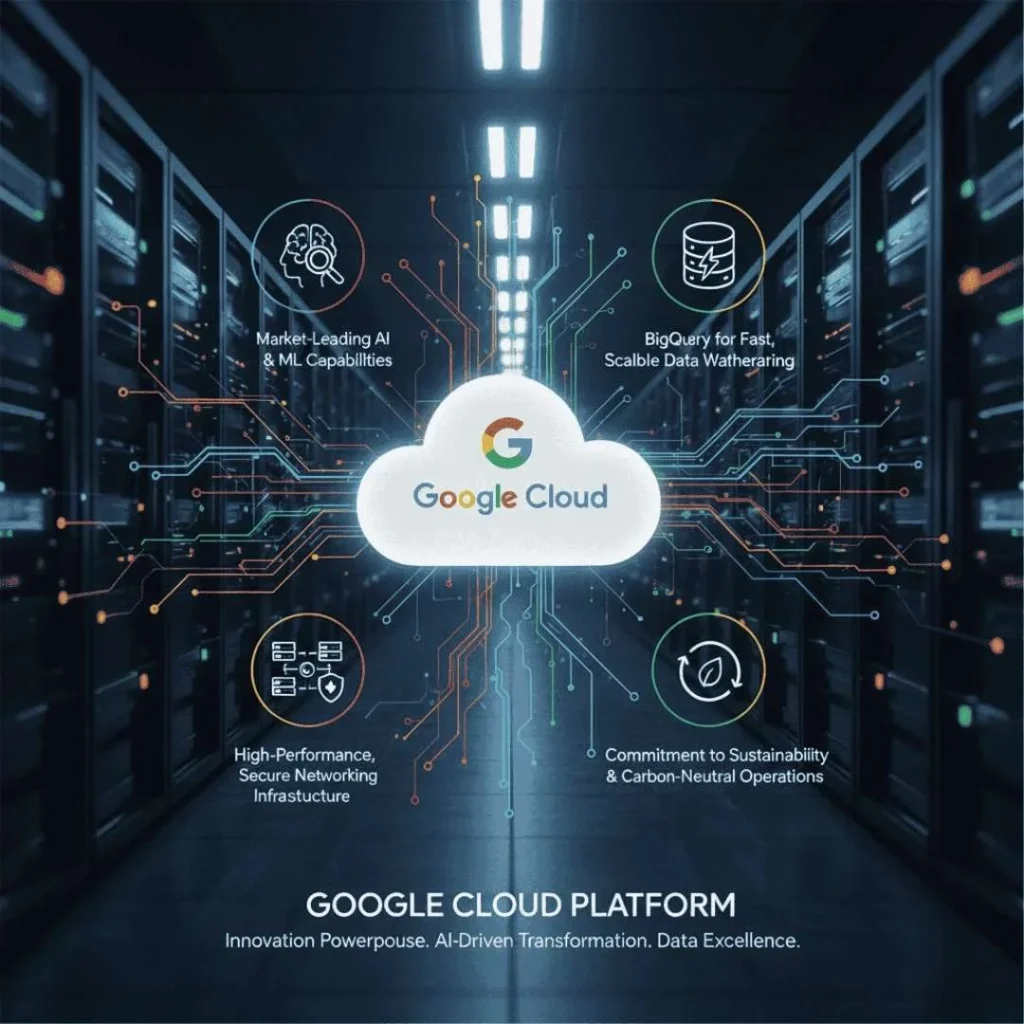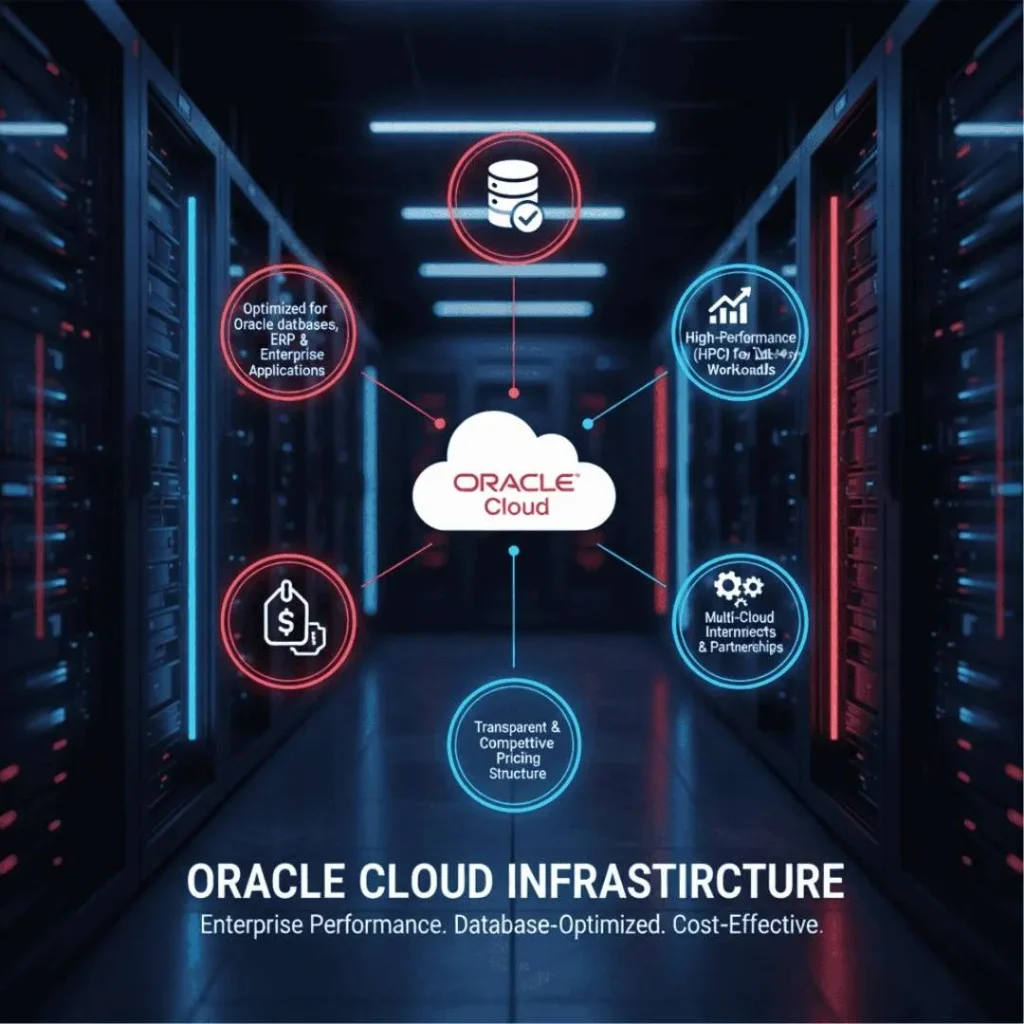Introduction: Why the Cloud Is Essential for Corporate Success

In 2025, the cloud isn’t just a tech trend — it’s the backbone of modern business growth. Companies everywhere are leveraging platforms to scale operations, improve agility, and make smarter decisions.
Whether it’s hosting applications, managing vast amounts of data, or running AI-powered services. Choosing the right platform isn’t just about technology — it’s about making a strategic decision that shapes your company’s future efficiency, security, and innovation potential.
Let’s explore the top platforms for corporate companies in 2025, highlighting their strengths, real-world use cases, and why they might be the perfect fit for your business.
AWS Cloud — The Global Leader in Cloud Solutions
Why Enterprises Rely on AWS
When it comes to enterprise-level solutions, AWS consistently leads the market. It’s known for global reach, flexibility, and a wide range of cloud-based tools that support innovation.
Why AWS Works So Well for Enterprises

- Massive global infrastructure ensures low latency anywhere in the world
- Advanced AI and machine learning services to drive smarter insights
- Enterprise-grade security and compliance frameworks
- Flexible pay-as-you-go pricing models
- Smooth migration and hybrid support
Who Should Consider AWS
Large companies aiming for global expansion and reliable services often choose AWS. If your business needs a secure, consistent, and scalable digital environment, AWS is a strong contender.
Microsoft Azure Cloud — The Top Hybrid Cloud Platform
Why Businesses Choose Azure
Microsoft Azure is perfect for organizations that want a mix of on-premise and operations. It integrates seamlessly with Microsoft tools like Office 365, Dynamics 365, and Windows Server, making hybrid setups easy.

What Makes Azure Stand Out
- Flexible hybrid architecture for modern IT operations
- Tight integration with enterprise applications
- Strong security and identity management
- Built-in AI, IoT, and analytics services
- Support for developers building native applications
Who Should Consider Azure
If your company relies on Microsoft systems or wants to modernize legacy applications without disrupting existing operations, Azure offers a smooth transition while giving you global scalability.
Google Cloud — The Cloud of Data Intelligence and Innovation
Why Google Is a Top Choice
The Google Platform is designed for companies that prioritize innovation, speed, and intelligence. With powerful AI and real-time analytics, GCP helps businesses transform data into actionable insights.
Why Google Cloud Works for Data-Driven Businesses

- Leading AI and machine learning capabilities
- BigQuery for fast, scalable and data analysis
- Advanced networking and security
- Focus on sustainable, carbon-neutral operations
- Collaboration tools integrated with Google Workspace
Who Should Consider Google
If your company thrives on data analytics and AI, Google can give you the insights you need to innovate and improve efficiency. For data-driven enterprises, GCP is a natural choice.
IBM Cloud — The Most Secure Cloud for Regulated Industries
Why Enterprises Trust IBM
IBM excels in security and compliance, making it ideal for regulated industries like finance, healthcare, and government. It combines open-source tools, AI, and multi-flexibility to meet enterprise needs.

IBM Cloud Strengths
- Advanced encryption and end-to-end data protection
- Hybrid and multi-cloud capabilities via Red Hat OpenShift
- Comprehensive regulatory compliance frameworks
- Built-in AI and automation tools for management
- Enterprise-grade scalability for critical workloads
Who Should Consider IBM
Companies handling sensitive or regulated data need a secure, trustworthy platform. IBM offers both compliance and flexibility without sacrificing performance.
Oracle Cloud — The Cloud for Enterprise Databases and High Performance
Why Enterprises Choose Oracle
Oracle Infrastructure is built for performance-heavy workloads and database-driven operations. It integrates deeply with Oracle applications and provides predictable costs for enterprise computing.
Why Oracle Works for Database-Centric Companies

- Optimized infrastructure for Oracle databases
- High-performance computing for data-intensive workloads
- Transparent, predictable pricing
- Strong security and identity management
- Easy integration with on-premises and multi-environments
Who Should Consider Oracle
If your business relies on Oracle applications or heavy database processing, Oracle offers speed, reliability, and cost-efficiency.
Choosing the Right Cloud Platform for Your Business
Picking the right platform requires considering your business goals, operational needs, and growth strategy.
Key Considerations for Selection
- Scalability: Can your solution grow with your business?
- Security: Does the platform meet compliance standards?
- Integration: Can the services fit your current IT setup?
- Cost Efficiency: Are pricing and billing transparent and flexible?
- Support: Is enterprise-grade support available for developers and admins?
The ideal platform matches your company’s digital strategy, budget, and long-term vision.
Comparing the Top Cloud Providers in 2025
| Cloud Provider | Best Feature | Ideal For |
|---|---|---|
| AWS | Global scale and service diversity | Large enterprises |
| Microsoft Azure | Hybrid capabilities | Microsoft-based organizations |
| AI and data analytics | Innovation-focused companies | |
| IBM | Security and compliance | Regulated industries |
| Oracle | High-performance computing | Database-heavy enterprises |
Every provider offers unique advantages — the right one depends on your business priorities, tech road map, and operational model.
The Future of Cloud Computing for Corporate Growth
The future of cloud computing in 2025 is shaped by AI automation, sustainability, and data-driven decisions. Companies moving to the enjoy faster innovation cycles, lower costs, and stronger resilience.
Hybrid and multi-strategies will continue to grow, allowing businesses to use the best solutions for different workloads. This flexibility reduces vendor lock-in while improving business continuity.
Final Thoughts — Finding Your Ideal Platform
Each platform has its strengths:
AWS — unmatched scale and global reliability
Microsoft Azure — hybrid integration with Microsoft tools
Google — AI-powered, data-driven innovation
IBM — secure and compliant for sensitive industries
Oracle — high-performance database support
Ultimately, the best platform is the one that aligns with your company’s goals, technology needs, and growth vision. The right solution empowers your organization to stay agile, secure, and competitive in an increasingly digital world.
